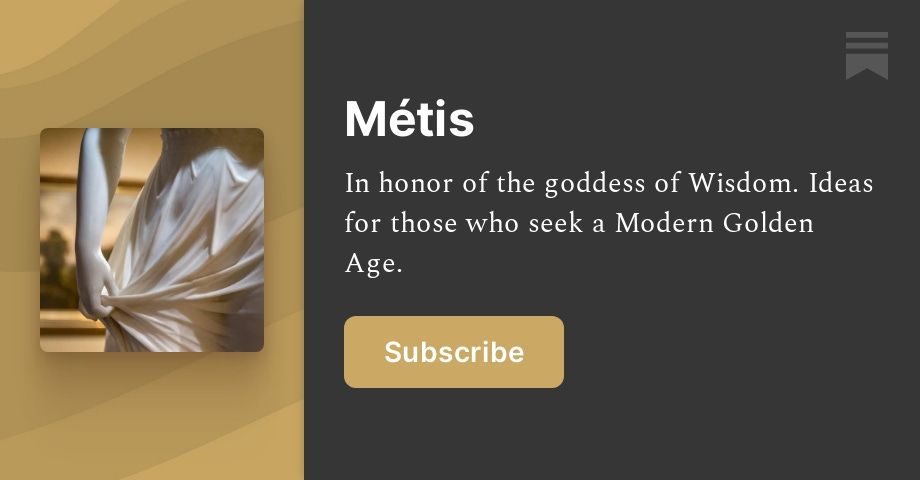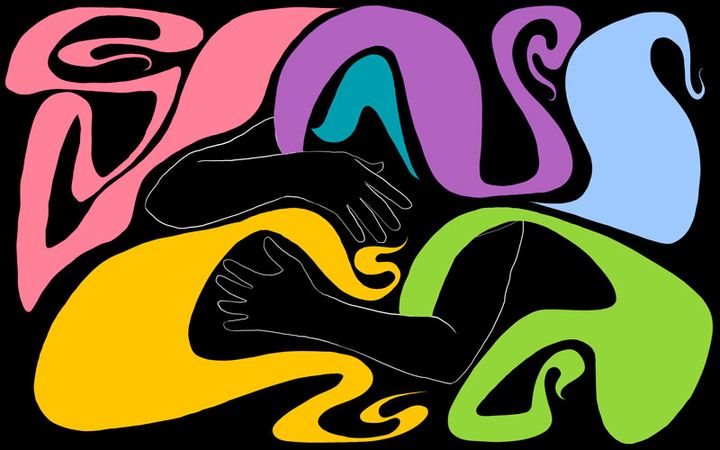"Educating, with Love" by João Mateus

The essay was originally published by João Mateus for his blog
This is an adaptation of my original speech at a conference called “Educar pelo amor” (Educating, with Love), which took place on May 25th at an Online Event organized by Descobrimos, a Portuguese Educational NGO.
Good morning.
First of all, I want to express my gratitude for being invited by Sílvia and Descobrimos to give a talk on such an important topic as this one.
I’m not gonna lie. Most of my fellow speakers are either PhD’s or people that, before I was even born, were already working in the educational space. I don’t have either the title or the experience that these fine men and women have.
So what am I doing here? Well, let me know if you find out because I’ve been asking myself that question as well.
On a more serious note, I want to take you first on a journey through my own experience with education. Maybe that will help us figure out why a young man like me is speaking at an event like this.
In 6th grade, I was competing in professional swimming.
I had been doing it for a long time, but all the training and traveling were wearing me out so, I asked my mom to quit.
My parents are both big fans of Educating with Love.
They understood the importance of having other focuses besides grades and school, so they wanted me to have some extra activity. After some brainstorming, they proposed learning how to play the guitar. Both of them knew how to play some chords, but they wanted me to have proper training. And so, I did.
However, the classes weren’t great. Mostly because…I didn’t study. In fact, most weeks, I wouldn’t even remove the guitar from the bag!
That was until I faced a moment of being educated with (tough) love.
I had a weekly 45min guitar class that usually would be me trying to figure out things at the moment or asking questions that would make us lose a bunch of class time, in the hope of not having to pick up the guitar.
Who could’ve guessed that this wasn’t a sustainable strategy?
In that specific class, I played for 1 minute and spent 42 listening to my teacher (rightly so) rambling about how I was wasting his time and my own. How it made little sense for me to learn how to play and, finally, how quitting would be the best for everyone involved.
He then let me leave 2 minutes early, so not everything was bad…
I remember closing that door and thinking: “Oh yeah? You’ll see!”
My friends, I went home and started to practice like a madman. In fact, I fell in love with the guitar and went from the “kid who should quit” to the best guitar student in my school, scoring 5/5 every term.
This is a perfect example of how transformative the right words and approach can be. Even if they leave us uncomfortable at first.
At that moment I decided I wanted to be a musician.
In high school, I studied music and had the fortune to have another great teacher called Hugo Trindade. He was my first mentor and taught me a lot about guitar, but also, about being a better human being in general.
We talked about family, the future, money, and love. As long as I kept playing well, everything would be a great topic of conversation. After graduating high school, we went to have lunch and he told me: from now on, you’re no longer my student, we’re both musicians and colleagues. I see you as a friend.
As I stood there, flabbergasted, he finished off with: since we’re friends you’re paying me for this lunch.
It was a pleasure to pay for that meal.
Hugo taught me what was like to educate with love, with friendship as a north star, without ever compromising results.
After high school, I kept my idea of being a musician, so I went to college. I had the pleasure to have André Fernandes as a teacher (one of the greatest guitar players in Europe).

After 3 years of (almost) weekly classes with him, I learned a lot.
2 lessons stand out:
- A musician is not defined by 1 concert, but by everything he does. This applies to all crafts.
- 99% is not the same as 100%. Strive for the latter. Strive for excellence.
André was a phenomenal teacher and I’m really glad I had him as a mentor as well. These 2 ideas changed the way I approach anything I do.
However, this was also the time when I got a wrist injury that would make me change careers.
I finished the course (and still play live, from time to time) but I decided I wanted to pursue another one of my passions: inspiring people by helping them improve their performance.
I finished college, did some coaching, NLP, and training courses, and co-founded a company called “Academia do Sim” that did corporate training in the behavioral area.
For 3,5 years that was my life until I decided to leave the company and work directly with high schoolers, my favorite kind of people, helping them develop soft and meta-skills through an online platform called What Drives Youth.
Unfortunately, things didn’t end well, and WDY was a dead end.
That, however, was the catalyst for Francisco Serralheiro inviting me to work with him at Entrepreneurial Gym, an NGO that focuses on helping young students to become more active citizens through social entrepreneurship.
And it is as Pedagogical Coordinator in this project that I stand here in front of you, talking about the topic “Educating with Love”.
Seeing this as the main topic in an educational event is, to me, a motive to rejoice. There are a lot of these events, in education and pedagogy, where the focus is on the technical aspect of this beautiful craft.
The latest model, framework, study, or strategy.
Don’t get me wrong, that’s fantastic! We need to be on top of these in the same way an artist needs to be familiarized with whatever new style is booming. After all, education is a craft. However, in the middle of so much technicality, we may forget about a fundamental part of any learning experience: the emotional state of those we want to teach.
Almost all of us, true fans of education and the art of teaching know that learning is state-dependent.
Anyone who doubts this should try the following experience: Pick a rather complex concept and try to teach them to someone who spent 7 hours working. The lack of patience and focus (packed together with some irritation) will quickly help you realize that it’s not the right moment to teach that person. Contrast that with them having a zoom class about their favorite topic after a day of work.
Suddenly, learning it was a relief, not a burden.
But it’s not always that students see learning as something positive.
I remember doing some training sessions for teachers. All of them complained about the same thing. Kids would ignore whatever they were talking about and just chat about other stuff. This was, and I quote, “rude, a demonstration of how misbehaved these kids are!”
I listen to them all, with my undivided attention. You can imagine my surprise when, afterward, as I shared some exercises that could help them with that problem, they started to talk to each other.
Of course, I brought that up and we explored why they were doing it.
You see, the problem with educators is that, sometimes, we put ourselves into what I like to call: The Educator Throne.

The ET is this attitude where we see ourselves as superior to whoever is in front of us.
We are the educators, they are the students.
We are the ones who talk, they are the ones who listen.
We are the ones who know, they are the ones that need to learn.
By the way, it’s not only teachers that use the ET.
Parents, spouses, trainers, and friends. All of them can sit on this throne.
When I’m on the ET, everyone HAS to listen. But what happens once roles reverse, and I’m suddenly a student?
Oh, how quickly things change.
I totally forget about how long someone took to prepare whatever they’re trying to teach me. My attention isn’t free. They need to earn it!
Does this ring a bell? Maybe some of you actually practice this, right?
When my main job was doing training sessions, there was one pillar I shared in almost all the training sessions: The theory of cause/effect.
No, I’m not talking about Karma, but ownership.
Basically, we can be the Cause of certain phenomena (taking ownership and searching for ways WE can use to change the situation and switch it to our side, taking over and assuming control) or suffer the Effects of those phenomena (making excuses, pointing to others as culprits of whatever bad is happening).
To facilitate, I use to say we can either be on the Cause’s Side or the Effect’s.
If we want to change the current educational paradigm, being the Cause is fundamental. However, being on the Effect’s Side is easier.
The system is the problem. The government. The teachers. The students. The parents. The families. The communities. The schools.
Those are the real troublemakers.
It’s easy to point out fingers because education is so broad…
However, pointing out the problem is only the first part. The real change is made by those who actually do things besides pointing fingers. By those who put themselves on the Cause’s Side.
That’s why if any of us wants to be part of this change if we want to educate with love, we need first to take ownership of our mistakes.
Where are we failing to do this?
This is an individual exercise first. The collective comes later.
It starts with observing our lives and contexts, realizing the moments when we’re abandoning the principle of educating with love.
It’s funny because most of the time, we actually fail to use this principle with the people we love the most. Regardless of calling them “students” or not.
And I’m not talking only about little kids. I hope you educate your friends and family as well, regardless of age!
I hope you have a real desire to nurture them and present them with the knowledge you have that may help them live better lives. That’s the first context where we need to evaluate our approach and how are we educating with love.
My girlfriend is phenomenal at thinking critically about the media or at noticing details in small things.
I am not.
She has knowledge to share with me, allowing me to live a better life.
She can/should/ tries to educate me! The same thing goes my way! I’m fairly good at dealing with anxiety. She sometimes suffers from it. I can educate her as well!
However, there are times when I’m not educating with love. When my patience is non-existent and I fail to actually create empathy with the person I’m trying to teach.
Maybe the same thing happens to you. Maybe, before thinking about your own classes, online courses, webinars, and clients, you should think about the people around you.
And in order to be more effective in doing it, we should try to find a definition for Educating With love. Or at least, let go of some abstraction and focus on some specifics, so we can actually think about your students.
It’s not an easy task, since defining Love has been something wiser men and women have tried before me and still failed. So, I won’t rant about Love and what it is, but I’ll tell you what it is to me: the final evolution of Empathy.
When we give our best to see the inner world of someone who’s in front of us, we’re practicing empathy.
When, based on that worldview, I adjust my own approach while dealing with that person, I’m practicing empathy.
When I recognize that my ability to do this is flawed, and still try to improve it so that others can have a better experience dealing with me, I’m not only practicing Empathy, I’m loving that person.
In fact, I believe I’m practicing love. We don’t have much time, so I won’t go into details on why Love is something we should both feel and practice. But let me leave a quick note. If you see love as something you can do, you can practice it more often and become a more loving person. The world needs that.
So, educating with love may be presented as the act of looking at the world from the point of view of those we want to educate, and understanding what can we make or share to create a better experience for them.
This is a two-phase process, where you also see the world from your perspective and understand what are things you know that they don’t, and how you can add value to their lives.
This is the most effective learning process, once it’s done properly.
However, it’s easy to get back to the Educator Throne.
I know what’s best for you!
Do you recognize this sentence? Maybe you’ve thought about it regarding your students. You may even have said it to someone. Alas, this is one of those expressions that rarely (if ever) works. Think about the times you were on the receiving side of that sentence. Did it work?
How many of you, listening to someone saying this, thought:
Yes! This person is right! She knows what’s best for me! I’ll follow whatever she says!
None! Not a single soul has ever thought this! So why would it be different for you?!
Sometimes teachers come to me after some talks or classes and ask how did I come up with specific exercises or stories. It’s actually pretty easy, I don’t assume I know what those students need! I create exercises or tell stories that serve as an invitation for them to tell me how can I help.
I remember what it is like to be at the receiving hand of a classroom. So, instead of carrying this superior attitude, meeting students where they’re at is my go-to.
Once again, educating with love starts with entering the world of those we want to teach. This is valid regardless of age, gender, status, education, or any other criteria for the person you have in front of you.
It starts with curiosity and questions, not judgments and facts.
Who are these people? What are their pains? What makes them happy? And sad? And excited? What do they like? What are their tastes?
It’s only after knowing this kind of information that we can actually start to communicate in the most effective way, sharing knowledge that improves their worldview and quality of life.
One of the things I do often is to ask mentors at Entrepreneurial Gym to put on some music before the students get into class. In the beginning, they’re always puzzled.
Seriously? That’s your tip as a Pedagogical Coordinator?
Yes, it is.
I tell them to play whatever songs they’ve been listening to recently and watch closely what happens as kids get in.
Most of the time, the music that our mentors listen to is the kind of music that the students will either listen to or, at least, recognize.
What do you think happens inside their heads when, coming to a classroom, they listen to a song that they know?
They feel curious.
They feel heard.
They feel safe.
I can’t tell you how many times I’ve seen kids relax (and, consequently, get into a better state for learning) just because they’re listening to a song they know. Some of their resistance dissipate even before you start speaking.
And by the way, this applies to students of all ages. I’ve had 80s rock playing in training sessions with some blue-collar workers. Some party-electronic dance music with young workers in big corporate companies. Even some indie rock while training startup founders.
Music is just a tiny example of something we can do to enter the other person’s world, adjusting the stimuli that they receive. I’m focusing on music but maybe what connects with who you want to teach is a certain image, a quote, or a specific book. You should know that, better than me.

This is a good first step.
However, I believe the major key regarding educating with love, the key to giving your students both what they want and need, is to simply listen to them.
When was the last time you actually listened to the people you were trying to teach? I’m not talking about listening to answers to questions you asked. Or opinions on topics you brought up.
When was the last time you listened to whatever THEY wanted to tell you?
Some say that the best tool for any educator is developing the art of asking questions. I agree. As long as we’re talking about deep questions. Sometimes, even hard questions.
How are they feeling? What are their fears? What is stopping them from getting what they want?
We’ve stopped asking deep questions.
I once had the pleasure to attend a conference with Marc Crackett, a Yale psychologist. He presented the idea that we’ve lost touch with our emotions and that questions are a way to recover that.
Let’s say you ask someone the most basic question: How are you? Usually, the answer is something along the line of “I’m ok” or “I’ve been good.” Marc’s proposition is that you prepare a follow-up question: But how are you really doing?
Once again, we go deeper. That’s where the magic happens. Love isn’t shallow. Education isn’t shallow. Why should our questions to those we want to teach be any different?
I remember having parents telling me: I ask my kid questions but he doesn’t answer me!
I always replied with: ok, what did you ask him? The answer was, 90% of the time: “How’s school?”.
Such a bad question right?
Of course, you’ll get a generic answer: “It was ok”.
Ask more interesting questions! Not only as a parent but, as an educator as well! Once again, be curious about who you want to teach. That’s the kind of approach you should have when you question and listen to your students.
It’s only when you get real data and real feedback that you can adjust your approach to teaching. And this data starts with research, with an honest and truthful approach toward your students. Caring about them and understanding what they want/need to learn.
Many companies have hired me in the past, asking me to give training sessions on specific skills that, after 5 minutes with the students, I understood were meaningless.
Every book on Designing Learning Experiences starts with the same advice: listen to those you want to teach.
And I know, I do sound like a broken record, but repetition is the mother of excellence and I do believe this is the whole basis for educating with love!
How can you apply this? Here’s what we do, in Entrepreneurial Gym.
We investigate everything that our kids want to tell us.
We make forms, we do interviews, we save WhatsApp messages, voice calls, and discord calls. All of these are then analyzed. Any time a student says something about us, we want to be there, listening and understanding.
The focus on the customer is something fundamental to the best products. The companies that bridge the gap and are recognized by all of us are obsessed with their customers. Why should educators be any different?
The answer is: they shouldn’t.
That’s why, if you have any type of project focused on education (that means everything between having a video explaining something and having a child) you should incorporate this obsession with who you want to teach into your approach. That’s educating with love!
Creating feedback loops where you send something on their way, so you can then analyze their reaction and tune your approach based on that, is a fundamental principle for this kind of education.
Because doing that, having the will to do that, is educating with love!
Being able to let go of what you think should be done and actually co-creating a solution with those you want to teach, that’s how you educate with love.
And we need it now, more than ever.
Thank you.



